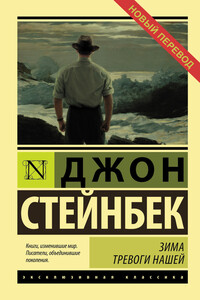In the barracks they tell of presentiments they
have heard about. There was the radio man who one morning folded his bedding
neatly on his cot and put his pillow on top. And he folded his clothing into a
neat parcel and cleared his locker. He had never done anything like that
before. And sure enough, he was shot down that day.
The tail gunner still hasn’t found his
medallion. He has gone through his pockets over and over again. The brutal talk
goes on until one voice says, “For God’s sake shut up. It’s after midnight.
We’ve got to get some sleep.”
The lights are turned out. It is pitch black in
the room, for the blackout curtains are drawn tight. A man speaks in the
darkness. “I wish I was in that ship by now.” He knows that he will be all
right when the mission starts. It’s this time of waiting that hurts, and
tonight it has been particularly bad.
It is quiet in the room, and then there is a
step, and then a great clatter. A new arrival trying to get to his bunk in the
dark has stumbled over the gun rack. The room breaks into loud curses. Everyone
curses the new arrival. They tell him where he came from and where they hope he
will go. It is a fine, noisy outburst, and the tension goes out of the room.
The evil thing has gone.
You are conscious, lying in your bunk, of a
droning sound that goes on and on. It is the Royal Air Force going out for the
night bombing again. There must be hundreds of them—a big raid. The sound has
been going on all evening and it goes on for another hour. Hundreds of
Lancasters, with hundreds of tons of bombs. And, when they come back, you will
go out.
You cannot call the things that happen to
bombing crews superstition. Tension and altitude do strange things to a man. At
30,000 feet, the body is living in a condition it was not born to withstand. A
man is breathing oxygen from a tube and his eyes and ears are working in the
reduced pressure. It is little wonder, then, that he sometimes sees things
that are not there and does not see things that are there. Gunners have fired
on their own ships and others have poured great bursts into empty air, thinking
they saw a swastika. The senses are not trustworthy. And the sky is treacherous
with flak. The flak bursts about you and sometimes the fragments come tearing
through your ship. The fighters stab past you, flaring with their guns. And, if
you happen to see little visions now and then, why, that’s bound to happen. And
if on your intensified awareness, small incidents are built up with meanings,
why, such things always happen under tension. Ghosts have always ridden through
skies and if your body and nerves are strained with altitude, too, such things
are bound to happen.
The barrack room is very silent. From a corner
comes a light snore. Someone is talking in his sleep. First a sentence mumbled
and then, “Helen, let’s go in the Ferris wheel now.”
There is secret sound from the far wall, and
then a tiny clink of metal. The tail gunner is still feeling through his
pockets for his medallion.
PREPARATION FOR A RAID
BOMBER STATION IN ENGLAND, July 1, 1943—In
the barracks, a brilliant white light flashes on, jerking you out of sleep. A
sharp voice says, “All right, get out of it! Briefing at three o’clock,
stand-by at four-twenty. Better get out of it now.”
The crew struggles sleepily out of their bunks
and into clothes. It is 2:30 a.m. There hasn’t been much sleep for anyone.
Outside the daylight is beginning to come. The
crew gropes its way through sleepiness and the semidarkness to the guarded
door, and each goes in as he is recognized by the guard.
Inside there are rows of benches in front of a large
white screen, which fills one wall. Some of the crews are already seated. The
lights go out and from a projector an aerial photograph is projected on the
screen. It is remarkably clear. It shows streets and factories and a winding
river, and docks and submarine pens. An Intelligence officer stands beside the
screen and he holds a long pointer in his hand. He begins without preliminary.
“Here is where you are going,” he says, and he names a German city.






